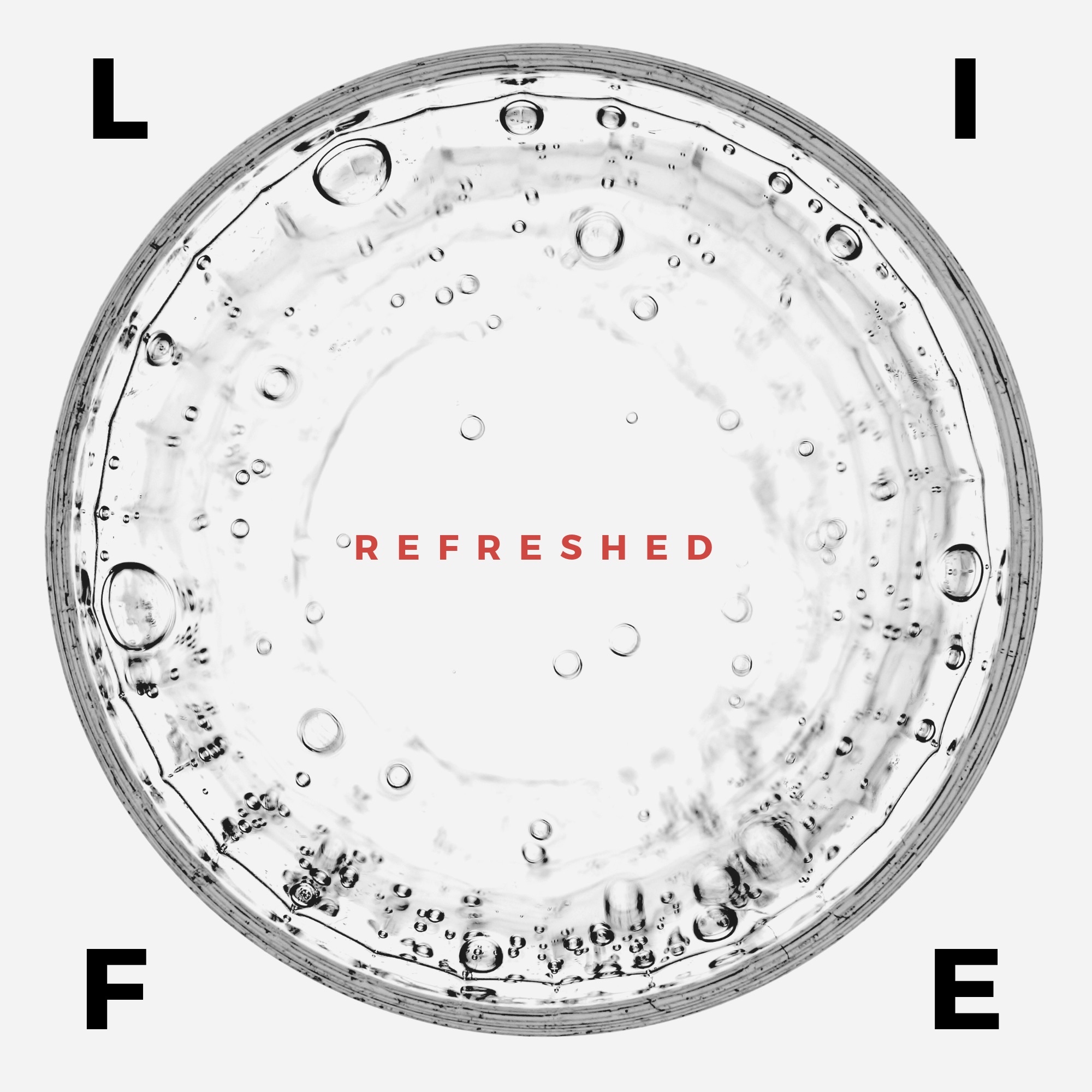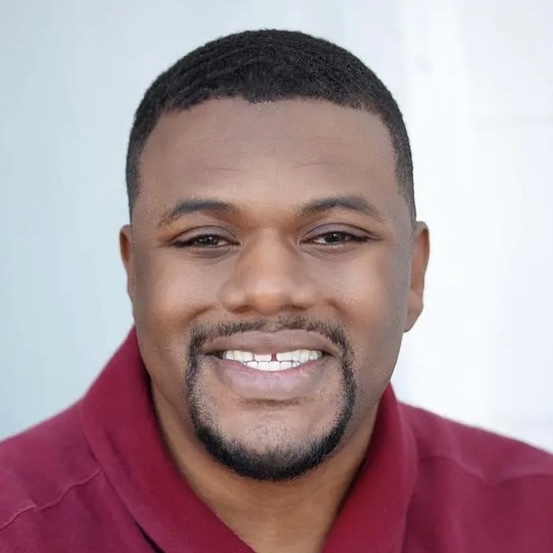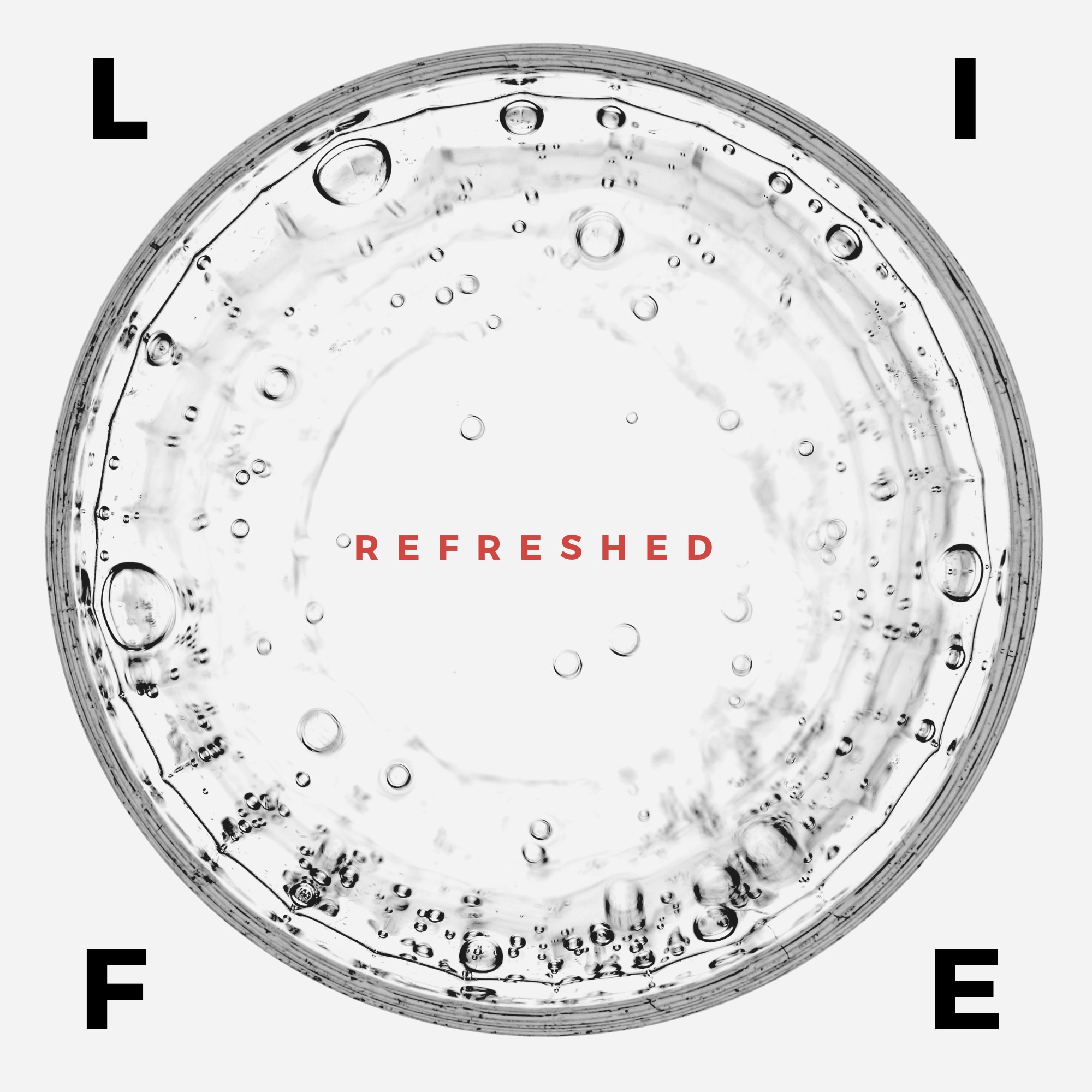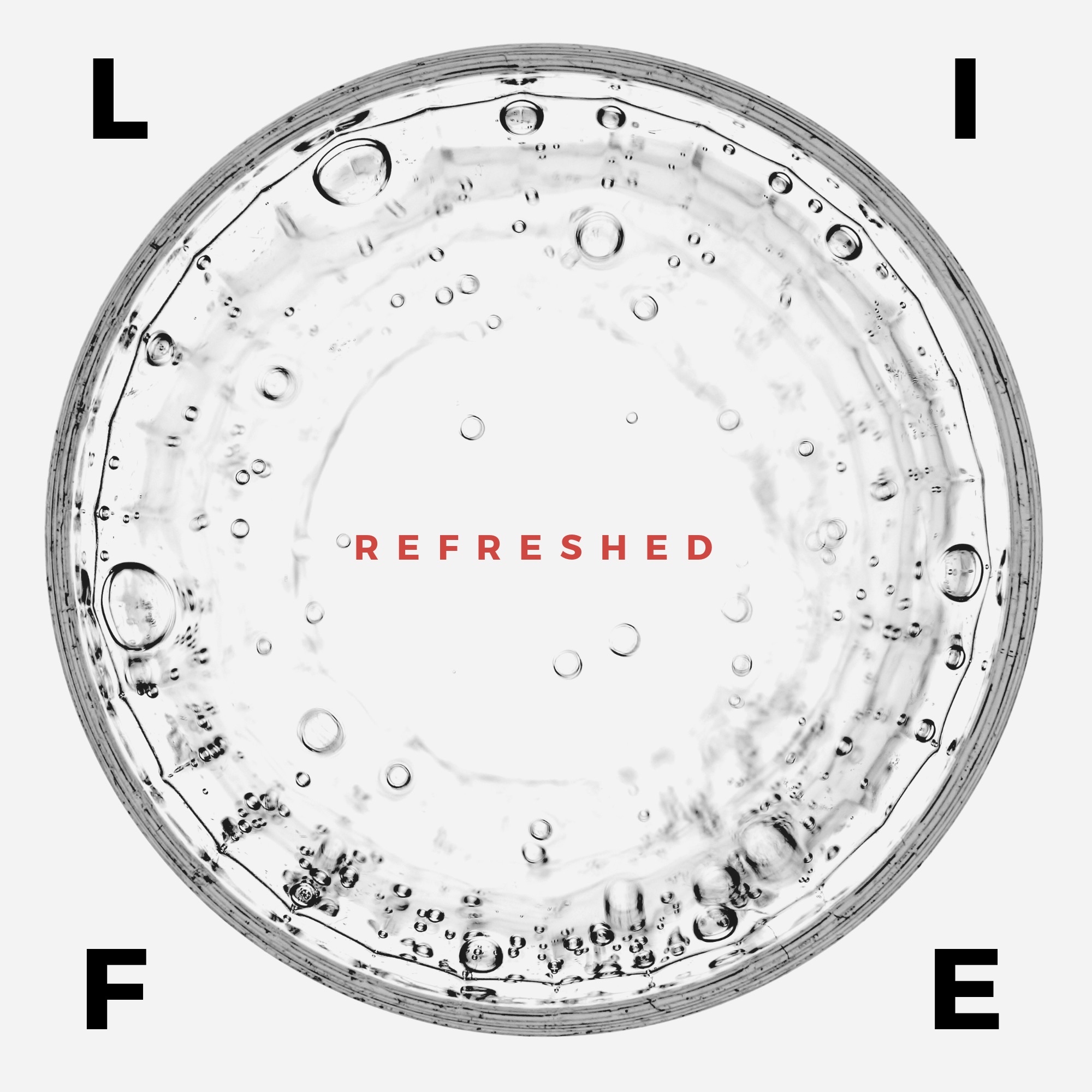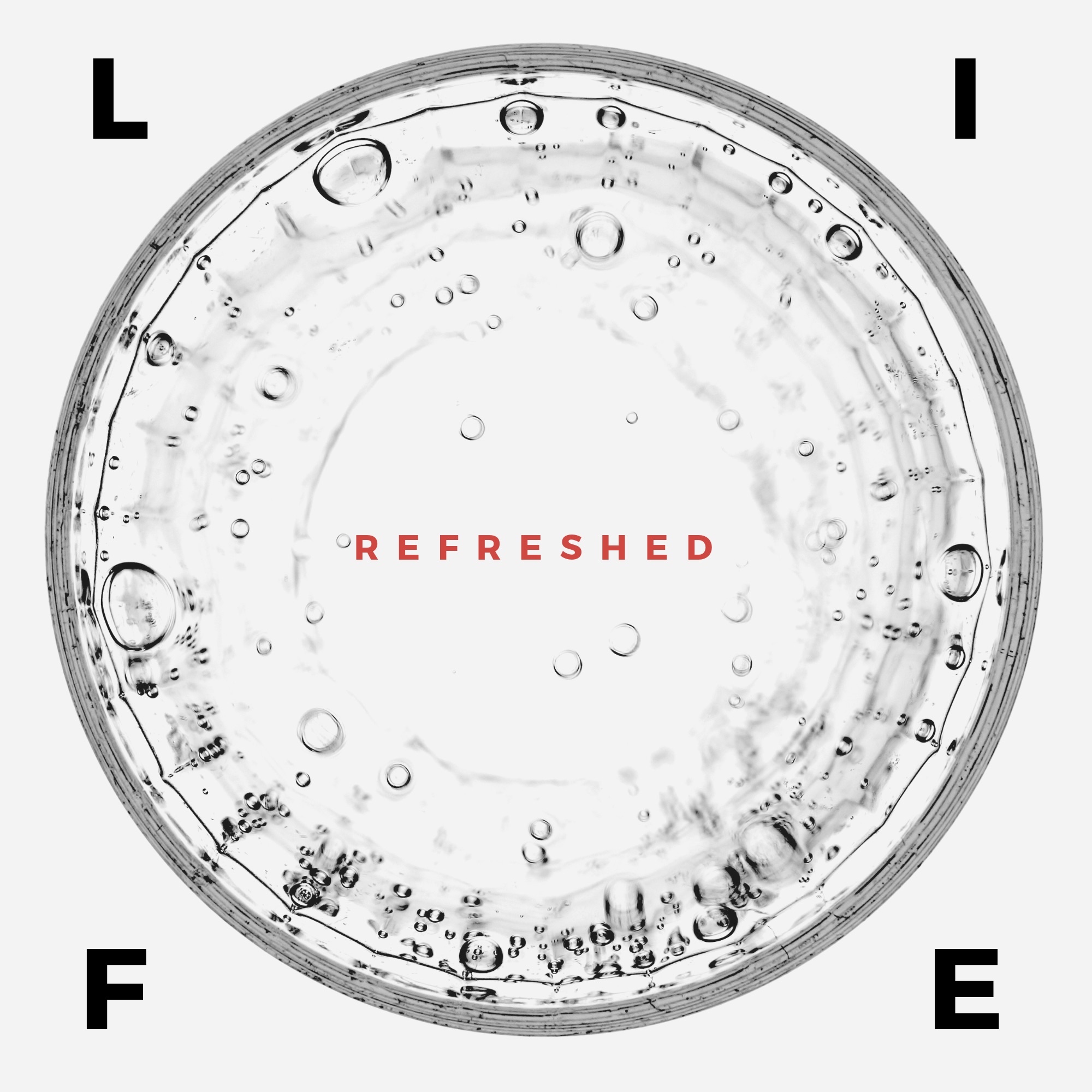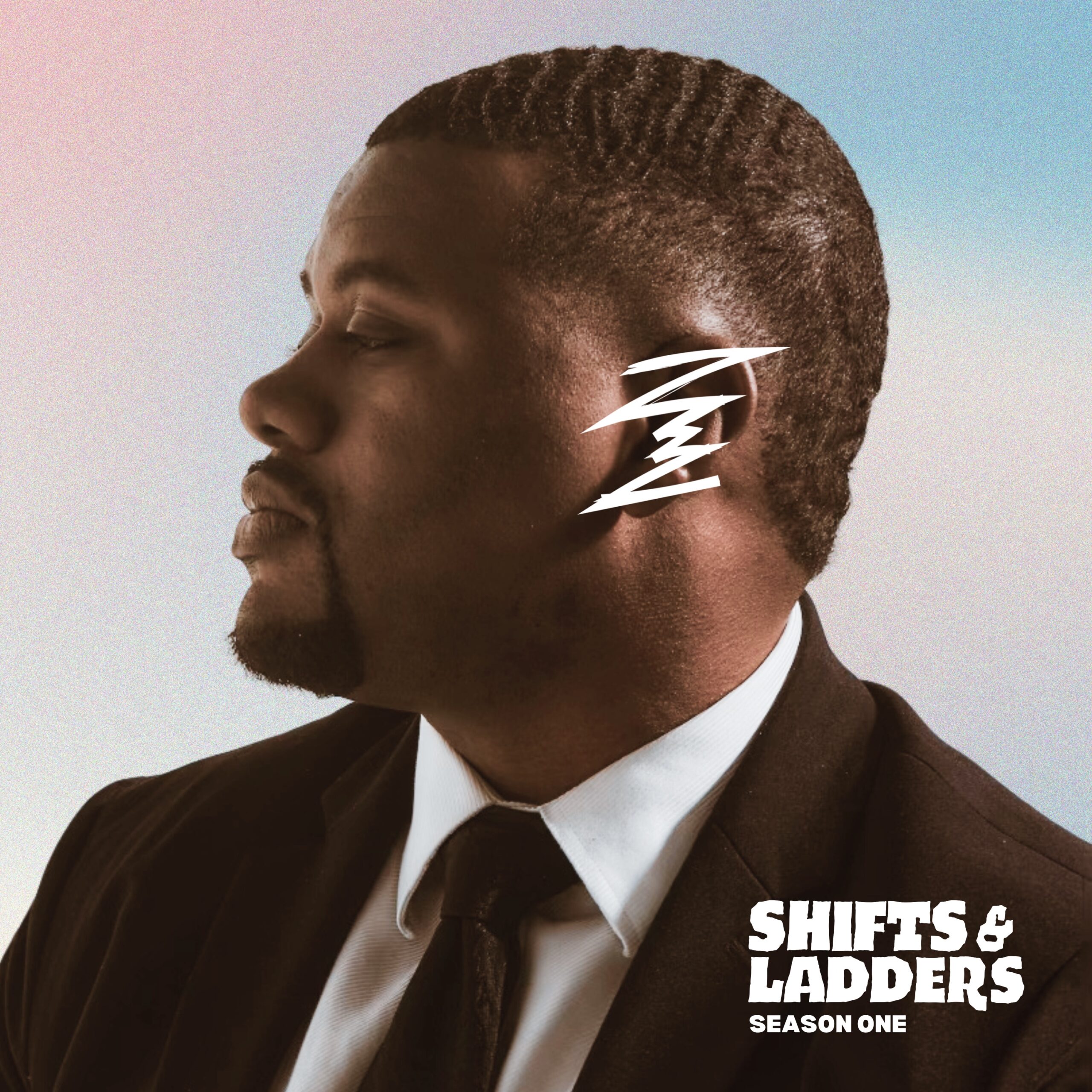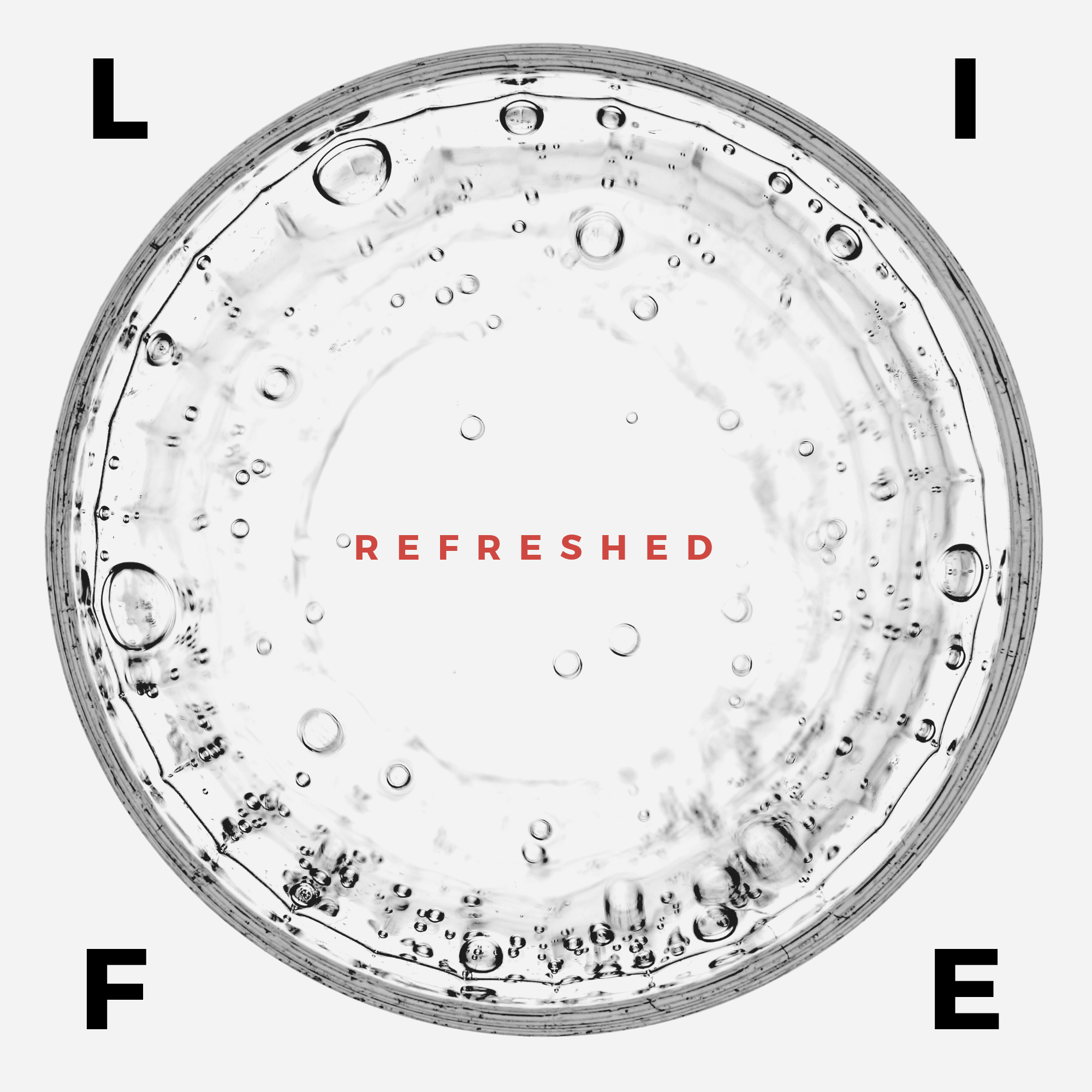Episode Transcript
Speaker 1 00:00:04 Welcome to the Life Refresh podcast. My name is Ryan Robinson, and if you are looking for a podcast that is designed to uplift, encourage and revive your heart, mind, and spirit, you're in the right place. Welcome to the journey of Becoming the version of You God designed from the foundations of the earth. Now, let's begin.
Speaker 1 00:00:31 I'm excited to bring to you the last piece of living, the refresh life. This has been a five part series that I've just been really enjoying, hoping that you have enjoyed it as well. Um, we have gone through what does it look to live a lean life spiritually as the foundation? What does it look like to live a lean life mentally making sure that our mindset is being renewed so that it matches and goes along with what our spirit is saying to us emotionally, living a lean life. How do we manage, how do we create the space that we need to effectively live a life that is renewable, that is full of forgiveness, that's full of, uh, gratitude. Um, those are just experiences that we need to have, uh, relationally so that we can one, be able to be available, to be friendly, to be able to, uh, move on.
Speaker 1 00:01:34 But all of those things that we talk about and living a lean life emotionally rolls right into what we're talking about when we're living a lean life relationally. And, uh, we talked about that as well, right? Practicing forgiveness and investing time and intercession and all those kinds of things. And you know, of course, we said, if you want friends, you first must show yourself friendly, uh, which is, uh, a proverb in itself. And there's so many things that we talked about in this particular series that if you haven't had a chance, make sure you go back and listen to the previous podcast around what it looks like to live a lean life. I really feel personally that this is a, a meaningful and very relevant way to communicate practically what it looks like to live a life that is minimal, but minimal with the right things.
Speaker 1 00:02:28 Most of the time, I feel like we have been given, uh, tools without having the right foundation for ourselves individually. Um, and I'll just give you a perfect example of this, Maria Kondo the, uh, magical Art of Tidying Up. And, uh, it's, it's actually a good book, <laugh>, I believe it or not. Uh, I am not a professional organizer by any means. That book was a New York Times bestseller, and the foundational piece of going through your items and decluttering your life, uh, or at least your material, items and clothing, was actually taking a piece of an article of clothing that you've put into the pile of the room, and then picking up that piece of clothing and asking yourself, does this spark joy? And, uh, you know, the thing is about that is I think it's a great question, <laugh>. It's a great question to ask yourself.
Speaker 1 00:03:27 But what I was finding is that if you don't know what sparks joy for you, how can you even determine if a piece of clothing makes you feel good? That's something to ponder, okay? And, uh, it actually rolls us right into living a lean life physically. Um, all the things that we've talked about are intangibles, um, spirit mentality, um, emotion, uh, relationships, which are all in many cases, uh, intangible. They are relational. They're, they're in, in <laugh>. They are invisible, but have a very real impact on us as people. But this one physically is actually just as important, if not, um, extremely important because it is actually the vehicle that all of these things that we talked about are housed in. If, um, if you don't take care of yourself, how can you take care of anyone else? You, you first must put your, you know, on an airplane and say, you need to put your mask on first before you need to help anyone else with theirs.
Speaker 1 00:04:39 So physically, we may have a calling that requires us to, um, stay long hours or be in good shape because we we're speaking, we're teaching, we're doing those kinds of things. And, and honestly, if we are not conditioned for what we have a deep calling to do, it actually makes it really hard because we've ran outta gas, we haven't taken care of ourselves. Um, the items that we have to do, uh, in order to execute on what that, um, goal or whatever that vision is for your life, can't be fully realized because we've essentially have not taken care of ourselves. And, um, you got injury that could happen. And again, this is not just me saying like, you need to go to a gym and all that kind of stuff. No, people go to the gym all the time, but they don't go for the right reasons.
Speaker 1 00:05:37 But then they also don't do the other piece of it, of, um, what we're gonna be talking about today. So, um, this first one, and I'm, again, there's like at least six things in here that are I want to, that are here. But I want to, um, I'm gonna talk about May probably two. I'm gonna talk about two for sure, maybe three if we have time. But the, the first one that I'm gonna talk about is we have to get the right amount of rest, the right amount of rest. And I'll tell you, this is for many people, including me. Um, the hardest thing to do is to get sleep. <laugh>. There is a, um, a author Greg McEwen who wrote the book, essentialism. And, uh, one of the things he mentions in this book is that in order to do a great job with your life, he said, you need to protect the asset, protect the asset.
Speaker 1 00:06:41 Now, what does that mean? Doesn't mean a whole lot to other people, but the thing is, the only way that you can protect the asset is if you take the time to sleep and get your rest. And sometimes you have to do nothing <laugh>. Um, it is the art of doing nothing. The art of doing nothing. How hard is it for us these days to learn how to relax? It is actually one of the most important things that we do. Imagine, especially in our culture, we value team. No sleep. I don't even see that hashtag anymore, but I know it happens. And the thing is, what ends up happening is that most people have realized that, um, if I don't, there's not enough time and hours in the day, therefore, I'm going to have to sacrifice sleep in order to get where I need to go.
Speaker 1 00:07:38 Now, granted, there is gonna be some sacrifice involved, but the thing is, you don't have to sacrifice the sleep. Why? Because the sleep is actually, your body's way of regenerating itself is like putting gas in the car. You wouldn't drive your car without gas with the light on to a city that takes you three hours to get to. You just wouldn't do it. It doesn't make sense. But for many of us, what we have done is we have completely and utterly run ourselves out of gas, and we're putting more exhaustion and more stress on the engine, our heart, our mindset. And you know, there, there's studies that have shown that when you have lack of sleep, you are, you are almost acting like you're inebriated. A k a drunk <laugh>. There, there is this point to, to living this life, especially in this kind of rural, and when it comes to resting and getting them out of sleep, don't do more today than what you can completely recover from today.
Speaker 1 00:08:50 That's a hard one. Don't do more in your week than you can completely recover from this week, so on and so forth. So it, it has to, and must require you to be mindful of the amount of exertion that you put into a particular activity, particular work day. There's been times when I've just worked myself out and I wake up, I'm like, dang, what did I do to myself? <laugh>, I just beat myself up real good. But you know, the thing is, it just doesn't set you up for the next day for success. And the thing is, y'all, I know we mentally know, like, you know, yeah, it'll be there tomorrow, but there is some kind of fear that we have that us being behind means that we are not as valuable, that we may not be as, uh, thorough, that we may not be as, uh, be as reliable, be as functional.
Speaker 1 00:09:45 We might be behind simply because we're scared of something, you know, in the Bible, and many people know this, but if not, I'll give you the reference. But when God was creating the heavens and the earth in Genesis chapter two, verse two, uh, excuse me, Genesis chapter two, verse two through three, this is say that when, when the seventh day came, God rested from his work and said that it was good. Now, the thing is, God who neither sleeps nor slumbers, decided to take a rest day. Now, the thing is, we've been made in the image and likeness of God. Therefore, there are some behaviors and some patterns by which we have been intricately woven. 'cause in this same chapter, it says that we have been made in the image and likeness of God, which means there is a correlation to how God functions and to how we should function if we're aware that we are in his image and his likeness as a child of God.
Speaker 1 00:10:53 Okay? So let's, let's kind of go through this. So the thing is, God got everything done in six days, and then he took the seventh day off. And, um, the hard part for us to sabbath, to Sabbath meaning to rest, to acknowledge, um, that the work is done, is actually a sign of trust in God. Because the thing is, you have, you technically have seven days, you can do everything. But if you can do, if you do everything that you can do and decide to rest on the seventh day, you are no longer relying on your ability to complete a task. You are trusting in God by saying, you know what? I don't think I can do this without you, God. So what I'm gonna do is I'm gonna trust you and I'm gonna rest from my labor. I'm gonna recuperate, I'm gonna recover. I'm gonna do the things that I need to do in order to take care of myself, but also minister to myself so that I am not beat down going into my week.
Speaker 1 00:11:58 Now again, this is, I'm speaking as a person who struggles, and I'm gonna make sure I say this 'cause I'm not a, I I don't wanna be a hypocrite. I struggle with this. I really, really do. And for some reason, I feel like I have fomo, uh, the fear of missing out. And I don't, nothing's really happening late. There's not a show, not a TV thing. But, you know, I, it is something that I have learned and I've conditioned myself when I played football that I felt like if I didn't, if I didn't watch it, or if I didn't do anything extra, I would be missing out on something. So I, I would get all the extra workouts in. I would take some, you know, extra film time to, to listen and watch. Um, I would just do extra and I would sacrifice rest to do it.
Speaker 1 00:12:55 And, uh, this is when you as an individual who are not living a lean life, mentally are doing damage to yourself because you feel like you're not adequate enough to figure out, I should probably rest one day. I'm learning that y'all, I'm learning that having two little people, well, for some people that's not rest, and I get that. But, um, it's important to be able to do it, have some rest. But it is something that, especially if you have, if you have a hard work ethic, it just makes it really difficult sometimes. But just because it's difficult doesn't make it less true. Both things can be true. I struggle with rest, but I believe rest is important. So, um, showing our rest is a trusting exercise that things will get done when they need to get done. Th this last one I is really important to me because what it does is it, it speaks to something that we have a challenge with generally.
Speaker 1 00:14:08 One, we don't have rest, right? We already talked about that. But the other part of this, again, another one of my quirks is living in balance with oneself. Okay? You know, I love, love, I like gummy bird. My daughter really loves them too. And a particular time of the evening, I like me a little bit of sweets, you know, like me some sweetss and some popcorn as well. And, um, you know, early on in my marriage, my wife would catch me <laugh> eating, um, and snacking more in the evening time than I did throughout the day. And she would say to me, me, she said, Ryan, those chips were actually meant to last the whole week. And it's just Wednesday. Yeah, y'all, I, I, I basically just scarf down, um, snacks, gummy bears, uh, potato chips, popcorn, whatever. You can, even other candies like Reese's PCs, man, all the candies are now in my head now <laugh>.
Speaker 1 00:15:17 But, um, you know, the thing is, what's hard about that is that when we have, or when we don't have any balance, we vacillate between, um, we'll go one side real hard and then in order to counterbalance it, we have to go harder on the other side, if we're thinking about a seesaw, okay? The seesaw is generally meant to make sure, or even any scale old school scale, Libra scale or anything that you would see in front of a, a, uh, uh, court. You'll see the scales of justice right? Now. The thing is, it was meant to be, uh, there's always going to be something that needs to counterbalance it, right? There's always a, there's a fulcrum or something in the middle. You keep a board that is particularly straight. And depending on what you put on both sides of it determines what side goes up and what side goes down.
Speaker 1 00:16:17 Right? Now, the thing is, if we are going to have balance, balance here, the the scales or the weights on each side need to be somewhat equal, okay? Now, this is the challenge, y'all. In order for it to be balanced, there's usually some rocking back and forth between the left side and the right side. If the weight is even okay balance. And what most people feel, and most people say is that I need to be balanced. I need to have stability. I need to have this, I need to have moderation in moderation. You know, me being some balance in food or whatever the case is, I need to have a balance there. Now, the challenge about it is, it's not a stagnant thing. 'cause people say, I need to get balanced. Okay, I understand that. But balance is never a straight line, no movement. You, your body will naturally even out or have to counterbalance.
Speaker 1 00:17:25 Think about you walking when you're walking somewhere, or when you're standing somewhere. Sometimes the left side is a little heavier than the right side or, you know, this, that and the other, right? But we pivot. But if we're standing straight up, there'd be some balance, right? But not all the time is there balance. So it's, our bodies are always going to be moving, you know, back and forth a little bit. Balance will always move from one foot to the right foot to the left foot as we're walking. And because that, that balance is not stagnant, it's always moving. We have as a culture, think that balance is that everything's okay, nothing's happening, everything is still, that's actually rest, which is what we talked about in the beginning here. But balance in itself is always an activity of things going back and forward and not having too much and not having too little.
Speaker 1 00:18:24 This is what moderation is, is finding the tension between two things. The whole bag of potato chips or no potato chips. Let me find something in the middle. I'm gonna find a balance. And with food moderation and weights and movement, obviously balance, it's really incredible to watch gymnasts to watch, um, athletes display balance. I mean, I remember seeing, um, I can't remember who it was, I, I forgot it might've been Reggie Bush, like when he first got, uh, into the N F L, but he took a hit and like bounced off the hit and still kept going, but kept his balance. It is actually an incredible thing to see, to see an individual be able to shift their weight one way, and then counterbalance what, uh, uh, a big impact like that counterbalance it, go with the, the movement, and then move back forward and make progress toward, you know, in this case a first down.
Speaker 1 00:19:37 But, um, that to me displays the beauty of what balance is. But balance is just, it's only felt by the person executing it. I don't think any of us are struggling to stay balanced when we're standing and talking to someone. We're never doing that. We're never doing that. But you know, when your, when your left foot is off, you know when, when your, your hip is giving out a little bit, you know, when you're tired standing up, a need to sit down, only balance is relative to you. I don't know if you're balanced or not. I know if you fall on your face or something like that, that you're not balanced. But I never know the subtleties of the challenges that you have when you're working on balance. It's something, again, it's inconspicuous to many of us, but it's extremely important because if we don't do the work we need to do to be balanced, you can't exercise.
Speaker 1 00:20:46 Well, you can't eat good stuff. You can't do any of the things that we know we should do. But you can have too much of a good thing. You can't outwork a bad diet <laugh>, nor can you not eat enough to support the work that your body and refreshing your body needs in order to grow muscle and lose fat and all that kind of stuff. There has to be a balance. So you can't just say, I just need rest. I need about three days of rest and then not work the rest of it, right? So, or you have to have this kind of balance in your life. And most of the time with all the things we've talked about prior to talking about what it looks to, looks like to live a lean life physically, some of those areas that we talk about, the spiritual, the mental, the emotional, the relational areas, sometimes because those areas actually might be outta balance too.
Speaker 1 00:21:46 But if we have physical balance, physical balance comes as an outcome of all the things that have come previous to this lesson. You cannot. And and I'm gonna conclude to this podcast and actually conclude the series here with a couple of things. This particular order by which the podcasts were released is basically an inside out job. We talked about this before in the beginning, your spirit informs your mental mentality. Your mentality helps with your emotions. Managed emotions help you be relational and relational things. All four of these things actually want make you and, uh, encourage you to physically take care of yourself, the temple by which everything resides in, so that you're functioning at the best you can for those that you care about, people that you interact with every single day. It's that important for us to be able to physically be able to meet our needs.
Speaker 1 00:22:51 There's gonna be a podcast, I keep saying it, and I, it's been, it's done, it's been recorded, and I, i, I don't want to, uh, share the guest's name yet. But, uh, stay tuned. Make sure you subscribe. 'cause in the next few weeks, that podcast interview will be posted. But, uh, I went on a, a weight loss journey right around the time my son was born. This, he was born in November, November 4th, specifically of 2022. And, uh, one of the, the, the crazy things that I said to myself is that I really want to lose weight and I don't want to be like the dad, but I just don't want the gut or anything like that. So, um, I sought some, sought out some help. And, uh, one of the things that this gentleman asked me, he said, well, what do you, what do you envision for your life?
Speaker 1 00:23:43 And I said, man, I just want to be able to not have my knees hurting and my hips popping when I'm trying to pick up my son or play outside with my daughter. I want to make sure that I'm physically able to be and experience things with them for as long as I can. So, you know, he was pretty moved by that and thought like, you know, I can help you with that. So I went on this journey to be lean, to lose weight, and I've come, I've come to discover that everything that I was physically wanting to accomplish really started on the inside first. I couldn't have seen myself more like more than a football player at that time. Um, but I got some encouragement that said, you know, you're not a football player anymore, so your weight workouts need to change. You need to change to more aesthetic workouts versus performance workouts. So there's no need squatting like 600 pounds or bench pressing four oh pounds. There's no need in the earth unless you're doing like a Iron Man or strong man exercise or Olympics <laugh> or playing football, right? But, um, I'm past that in my life and it took me some time
Speaker 1 00:25:06 To actually unlearn what I had come to know is true
Speaker 1 00:25:13 And start moving that information retiring, putting it in the trash can, and getting some new information so that I can thrive in what I felt I needed to thrive in for my family. So there's gonna be a lot more on this soon, but ladies and gentlemen, this is what it takes to live a lean life. Those who have lived, excuse me, those who have lived a prosperous purpose-filled life are those that live a life that is lean. They only carry with them the things that they need on the journey. I hope that this lesson or the series has encouraged you to examine what you're carrying, whether you need it, what you need to drop off, and what you need to keep moving with so that you can obtain and live out a lean life. We'll catch you in the next podcast.
